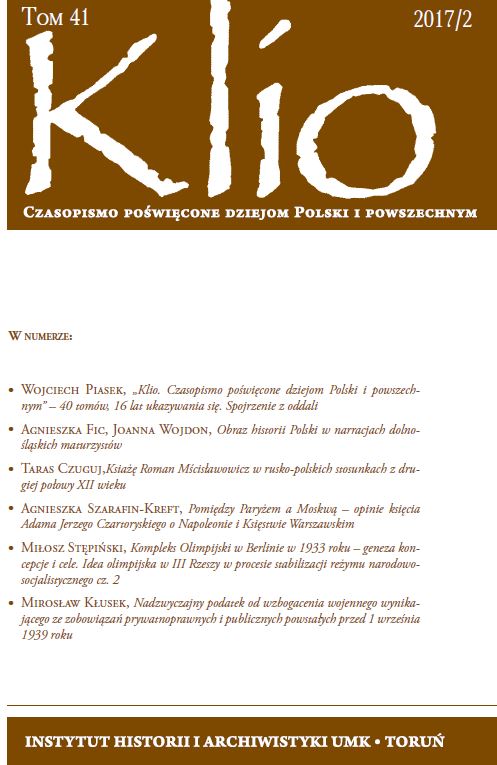Nadzwyczajny podatek od wzbogacenia wojennego wynikającego ze zobowiązań prywatnoprawnych i publicznych powstałych przed 1 września 1939 roku
The Exceptional Tax on Martial Enrichment involved in private law and state obligations arisen before 1st September, 1939
Author(s): Mirosław KłusekSubject(s): Economic history, Political history, WW II and following years (1940 - 1949)
Published by: Wydawnictwo Naukowe Uniwersytetu Mikołaja Kopernika
Keywords: taxes; banking; nominalism; indexation;
Summary/Abstract: The government of communist Poland after World War II repaying obligations followed the rule of nominalism considering the ratio of pre-war zloty to post-war zloty. Unfair enrichment was seen by the legislator as the only negative factor of introducing the rule of nominalism. The ultimate solution was regarded as introducing the exceptional tax on martial enrichment in the case of debt repayment in its nominal value. The Ministry of Treasury assumed that devaluation is one of negative results of war which is inevitable. We face such a situation when a creditor obtains devaluation margain in the case of repayment of indexed receivables. It is akin to debtors who repayed debts in the nominal value. The policy of nationalisation of devaluation margain was initialized by the decree of 13 April 1945 on the exceptional tax on martial enrichment which determined a tax on martial enrichment for the state benefit obtained during the Nazi occupation.
Journal: Klio. Czasopismo poświęcone dziejom Polski i powszechnym
- Issue Year: 41/2017
- Issue No: 2
- Page Range: 99-124
- Page Count: 26
- Language: Polish

